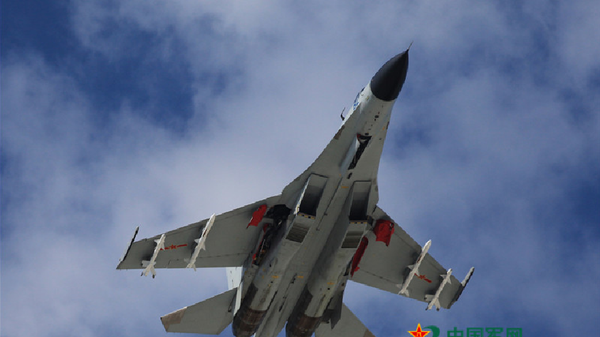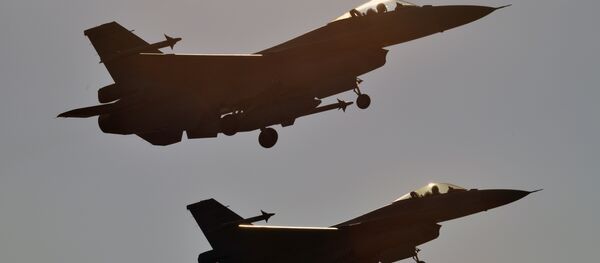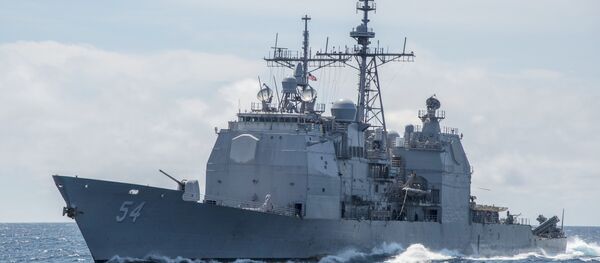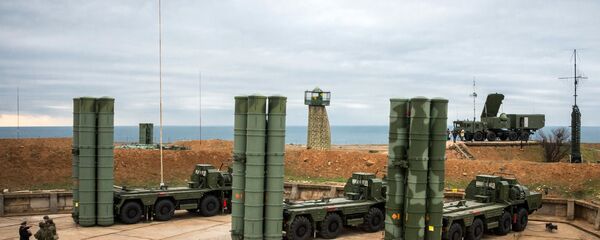Two Chinese J-11 fighter jets crossed the Taiwan Strait's "median line" on 31 March, prompting Taipei to scramble several aircraft in order to intercept the warplanes, according to Taiwan's Ministry of National Defence (MND).
Following the incident, Taiwan's President Tsai Ing Wen vowed that Taipei would conduct a "forceful expulsion" of any Chinese aircraft violating the "median line". For its part, the US warned Beijing against "altering the status quo" and the use of "force or coercion".
Beijing has not provided an official comment on the matter. However, Global Times, a Chinese daily newspaper, rubbished the claims, stressing that "the Chinese mainland has never recognized [the median line]". Beijing regards Taiwan as a breakaway Chinese island.
"The ‘middle line' is fictitious and psychological comfort to the Taiwan authorities. The Chinese mainland has never recognized it", the newspaper wrote. "Hence, even if PLA fighter jets did cross it, how the situation develops depends on Taiwan and US reactions… Washington has gone too far by sending warships to sail through the Straits thrice this year".
Having ruled out the possibility of "direct conflict", the scholar opined that the alleged aerial incident was an apparent signal that Beijing is ready to raise the stakes in the region over the rapprochement between Washington and Taipei.
The trend first emerged when then President-elect Donald Trump received a phone call from Taiwan's head Tsai Ing-wen on 2 December 2016. The move prompted a storm of criticism from China.
However, Trump's National Defence Authorization Act (NDAA) for the fiscal year of 2019 has stepped up US-Taiwanese cooperation, including provisions aimed at boosting Taiwan's military capabilities, among other issues.
Section 1257 of the law says that "the Secretary of Defence shall, in consultation with appropriate counterparts of Taiwan, conduct a comprehensive assessment of Taiwan's military forces, particularly Taiwan's reserves", adding that the assessment "shall provide recommendations to improve the efficiency, effectiveness, readiness, and resilience of Taiwan's self-defence capability".
The Russian scholar added that the alleged aerial manoeuvres over the Taiwan Strait could have also been prompted by Washington's apparent plans to sell over 60 Lockheed Martin Corp. F-16 fighter jets to Taipei.
Bloomberg reported on 31 March that "Trump administration officials have given tacit approval to Taipei's request" to buy the jet fighters, citing people familiar with the matter.
US Flexing Military Muscle in Taiwan Strait
Meanwhile, Washington is beefing up its military presence in the region.
On 24 March, two American warships, the US Navy guided-missile destroyer Curtis Wilbur and US Coast Guard cutter Bertholf, sailed through the Taiwan Strait.
Commenting on the issue, Cmdr. Clayton Doss, spokesman for the 7th Fleet, noted that the destroyers had conducted a "routine Taiwan Strait transit" which was "in accordance with international law".
"The ships' transit through the Taiwan Strait demonstrates the US commitment to a free and open Indo-Pacific", Cmdr. Doss said in an official statement.
Beijing strongly protested the transit, stressing that this practice could undermine Sino-American relations.
"China has been closely monitoring from start to end the passage by the US warships through the Taiwan Strait. China has lodged stern representations with the US", Chinese Foreign Ministry spokesman Geng Shuang said.
The US has stepped up patrol missions in the Taiwan Strait since summer 2018. In late January 2019, Washington sent the guided-missile destroyer USS McCampbell and the fleet replenishment oiler USNS Walter S. Diehl there in order to "demonstrate the US commitment to a free and open Indo-Pacific", as US Pacific Fleet spokesman Lt. Cmdr. Tim Gorman commented in a statement.
On 25 February, a similar mission was carried out by the USS Stethem and USNS Cesar Chavez. Commenting on the operation, Lt. Cmdr. Gorman told USNI News that "the US Navy will continue to fly, sail and operate anywhere international law allows".
The views and opinions expressed by the speaker do not necessarily reflect those of Sputnik.






